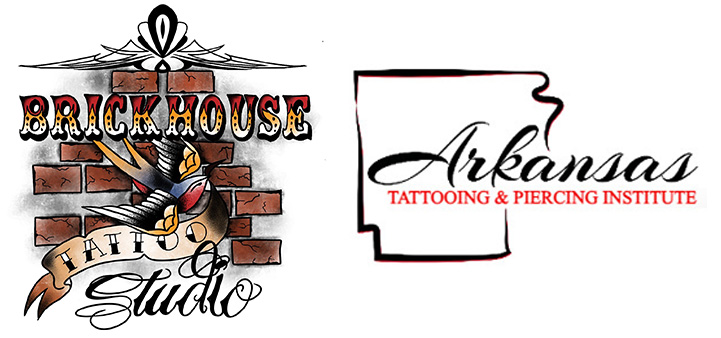- Attend an informal meeting with our instructor, John. (Only for tattoo students)
- Fill out the enrollment form.
- Pay a $100 application fee.
- Fill out our credit application for financing. (If applicable)
- Bloodborne Pathogen Certification – The bloodborne pathogens course shall be a minimum of two (2) hours of instruction. Online cost is $9.95. Once completed, please email the certificate to corporate@apciedu.com or screenshot and text it to 501-500-1343 (this is a text-only line and cannot receive phone calls.)
- Pay $50 to take the Apprentice Test. Once the apprentice test is passed, you can talk with our instructor about a start date.
Our tattoo and body piercing programs are flexible. There is a minimum of 8 hours per week for the tattoo program, anytime Monday through Friday 10:00 am to 6:00 pm. Piercing requires a minimum of 8 hours per week, but Fridays are mandatory from 5:00 pm to 9:00 pm.
Yes! All time spent at the school is for growth and learning, not fetching coffee for instructors or cleaning the bathrooms. No hazing here!
Yes! The online courses take care of the fundamentals. The hands-on training with an instructor will be done as you complete the online courses simultaneously.
The tattoo program is $9500 and the piercing program is $8500.
375 hours. Graduate in as little as 6 months. Most students finish within 6-12 months. The program must be completed within 24 months.
Yes! We partner with TFC for our financing. $950 down is required for the tattoo program and $850 is required for the piercing program. The rest is financed for 30 months. Bad credit doesn’t disqualify you.
- 18+ years of age
- Valid Government Issued-ID
- High School Diploma, GED, or Equivalent
Once the program is complete, the student pays $100 to the Arkansas Department of Health, along with submitting their license application. Once this is received, ADH schedules a date/time to come to the school and administer the practical.
